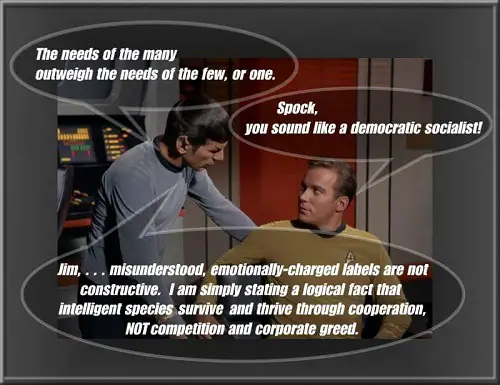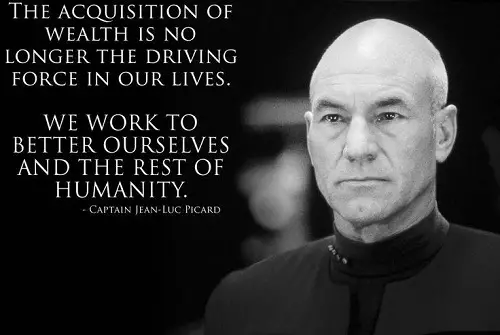|
TRANSLATE THIS ARTICLE
Integral World: Exploring Theories of Everything
An independent forum for a critical discussion of the integral philosophy of Ken Wilber
 Joe Corbett has been living in Shanghai and Beijing since 2001. He has taught at American and Chinese universities using the AQAL model as an analytical tool in Western Literature, Sociology and Anthropology, Environmental Science, and Communications. He has a BA in Philosophy and Religion as well as an MA in Interdisciplinary Social Science, and did his PhD work on modern and postmodern discourses of self-development, all at public universities in San Francisco and Los Angeles, California. He can be reached at [email protected].
SEE MORE ESSAYS WRITTEN BY JOE CORBETT
The Spiral of an
‘Integral’ Delusion
Joe Corbett
This is the current post-enlightenment period of plutocracy we now find ourselves in, where the democratic and scientific foundations of modernity have all but melted into thin air.
One often hears within integral circles of the developmental oscillation between individual and collectivist orientations, so that, for instance, whereas modernity is characterized by an individual achievement ethos, postmodernity is characterized by a collectivist ethos, and therefore post-postmoden integral being and consciousness will be characterized once again by a more integrated individualist ethos, presumably one in which each individual becomes an innovative entrepreneur leading the way in a brave new world of John Galtian self-sufficiency and superhuman individualism.
My contention is that this vision is patently false and is based on a misunderstanding of postmodernism (green) that will require a complete reorientation of the direction and goals of the integral leadership and its community.
As Jurgen Habermas and Zygmunt Bauman say, postmodernity is not so much a transcendence of modernity as it is a hyper-modernity in which the goals and values of modernity are extended to people and society where once they were limited and circumspect. Women and minorities are granted rights once denied to them, and the truths of authority (from the white male heterosexual and imperialism to science itself) are put under the spotlight and hollowed-out of their sacred essence.

In a word, under postmodernity the myth of the given is dethroned, and with it the enlightenment myth of progress through the application of science and reason to social problems is exposed as a gender, class, and racial fraud that the white European male has imposed as a narrative on the world for his own advancement and self-aggrandizement. What began as a critique of religious superstition and authority under modernity ends in a critique of scientific materialism and political-economic authority under hyper-modernity (postmodernity).
Thus, what characterizes postmodernity above all is a kind of relativism that lacks moral and epistemological authority beyond the individual in what Norman O. Brown has called the loss of the Father, where there is no center, and self-identity is the only anchor left for individual stability and existential grounding. The vacuum is filled with narcissistic consumerism and the pursuit of money as an infantile anal-fecal fixation, patriotic flag-waving and its variant in vicarious identification with sports teams, and the endless other quasi-individual tribal identifications (gender, race, new age religion, etc.) offered as postmodern forms of self-identity in a factionalized anarchy of cultural centerlessness.

These are the cultural conditions that then make possible the seamless economic and political transformation into neoliberalism, where the institutional and material conditions of a war of all against all can be implemented without resistance for the benefit of the few. This is the current post-enlightenment period of plutocracy we now find ourselves in, where the democratic and scientific foundations of modernity have all but melted into thin air.
Notice that the era of postmodernity is not characterized by a collectivist ethos, but rather by individual narcissism and quasi-individual tribalism. Postmodernity is the logical conclusion of a modern individual achievement orientation, not its transcendence. Therefore, what comes after postmodern-green isn't the hyper-individualized ethos of innovative entrepreneurialism, which is precisely the neoliberal conditions for a war of all against all, but a collectivist ethos—not of mass obedience to a central authority, but networks of p2p individuals working on common projects for the collective good, otherwise known as (integral) socialism.
If there is one thing holding back the development of the integral vision into a reality, it's not a mean green-meme bent on social division and deconstruction, but the continued belief and practice of integral leaders and the integral community that the next integral stage of development is characterized by superhuman individualism in the oscillation of the spiral away from “collectivist” green. On the contrary, once integral leaders and the integral community come out of the delusion of superhuman individualism, they will realize that the only solution to first tier problems isn't self-interested narcissism and tribalism but a collectivist vision of networked individuals working toward common purpose and universal human interests.

|
 Joe Corbett has been living in Shanghai and Beijing since 2001. He has taught at American and Chinese universities using the AQAL model as an analytical tool in Western Literature, Sociology and Anthropology, Environmental Science, and Communications. He has a BA in Philosophy and Religion as well as an MA in Interdisciplinary Social Science, and did his PhD work on modern and postmodern discourses of self-development, all at public universities in San Francisco and Los Angeles, California. He can be reached at [email protected].
Joe Corbett has been living in Shanghai and Beijing since 2001. He has taught at American and Chinese universities using the AQAL model as an analytical tool in Western Literature, Sociology and Anthropology, Environmental Science, and Communications. He has a BA in Philosophy and Religion as well as an MA in Interdisciplinary Social Science, and did his PhD work on modern and postmodern discourses of self-development, all at public universities in San Francisco and Los Angeles, California. He can be reached at [email protected].


